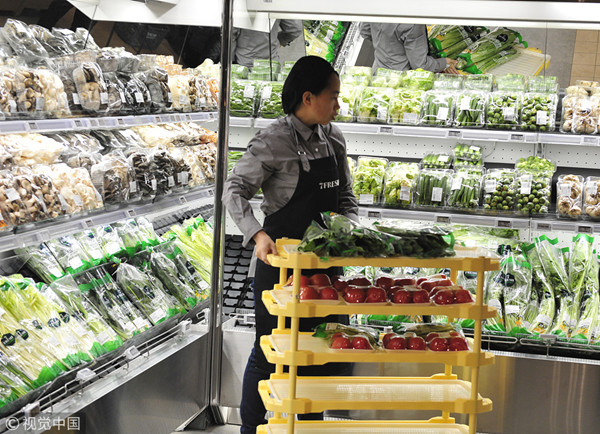Online fresh food trend sweeps farmers' markets


BEIJING - Though leaving work after local farmers' markets closed around 7 pm, Chen Fang, a Beijing-based accountant, still managed to make five tasty dishes for her child's birthday.
For Chen, who loves food and cooking, buying fresh produce online has become her new routine, displacing her old habit of purchasing ingredients from farmers' markets.
"Why bother going to produce markets? With a simple click on my phone, I can order lobsters from Boston, cherries from Chile and organic tomatoes before heading home and find them on my doorstep when I arrive," she said.
Consumers like Chen are not alone as online grocery platforms that can deliver food at the touch of a button, 24 hours a day, are springing up and booming in Chinese cities, especially after the country's e-commerce giants like Alibaba and JD.com poured money into supply chain and logistics to lead the market.
Data from consulting firm iResearch shows China's fresh food e-commerce trading volume exceeded 200 billion yuan ($28.4 billion) last year, and the number is expected to soar to 700 billion in 2022, representing huge market potential.
"I don't know how to pick out vegetables, and vendors at farmers' markets might overcharge me. Buying fresh food online is more transparent," said Li Feifei, a 23-year-old IT worker in the city of Suzhou, east China's Jiangsu Province, who is also a regular customer of online food platform Dingdong.
In Li's view, her peers prefer not to visit traditional produce markets because they consider them untidy, out of fashion and only suitable for the elderly.
While convenience offered by online service is like a magnet for some consumers, concerns about online groceries still remain in terms of food waste and quality.




































